This article is about the spiritual beliefs, histories and practices in Kwakwaka'wakw mythology. The Kwakwaka'wakw are a group of Indigenous nations, numbering about 5,500, who live in the central coast of British Columbia on northern Vancouver Island and the mainland. Kwakwaka'wakw translates into "Kwak'wala-speaking tribes." However, the individual tribes are single autonomous nations and do not view themselves collectively as one group.

In Japanese folklore, kitsune are foxes that possess paranormal abilities that increase as they get older and wiser. According to folklore, the kitsune-foxes can bewitch people, just like the tanuki they have the ability to shapeshift into human or other forms, and to trick or fool human beings. While some folktales speak of kitsune employing this ability to trick others—as foxes in folklore often do—other stories portray them as faithful guardians, friends, and lovers.
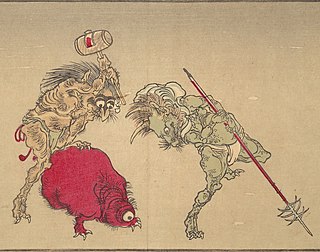
Yōkai are a class of supernatural entities and spirits in Japanese folklore. The word yōkai is composed of two kanji characters that both mean "suspicious, doubtful", and while it is regarded as deriving from the Chinese term yaoguai and involves similarly strange creatures, some Japanese commentators argue that the word yōkai has taken on multiple different meanings particular to a Japanese context, including a large number of uniquely Japanese creatures.
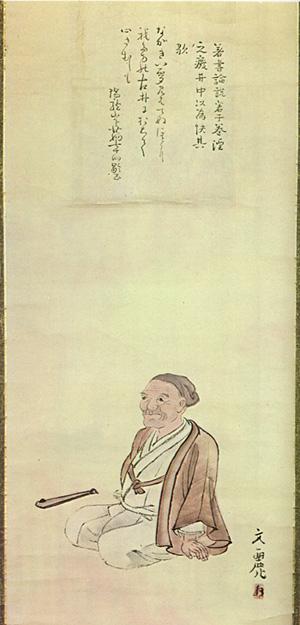
Ueda Akinari or Ueda Shūsei was a Japanese author, scholar and waka poet, and a prominent literary figure in 18th-century Japan. He was an early writer in the yomihon genre and his two masterpieces, Ugetsu Monogatari and Harusame Monogatari, are central to the canon of Japanese literature.
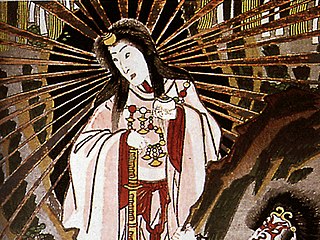
In Japanese traditional beliefs and literature, onryō are a type of ghost believed to be capable of causing harm in the world of the living, injuring or killing enemies, or even causing natural disasters to exact vengeance to "redress" the wrongs it received while alive, then taking their spirits from their dying bodies. Onryō are often depicted as wronged women, who are traumatized, envied, disappointed, bitter, or just furious by what happened during life and exact revenge in death. These kinds of ghosts appear extremely vengeful, ruthless, heartless, brutal, cruel, deranged, egotistical, selfish, bloodthirsty, and cold-hearted.
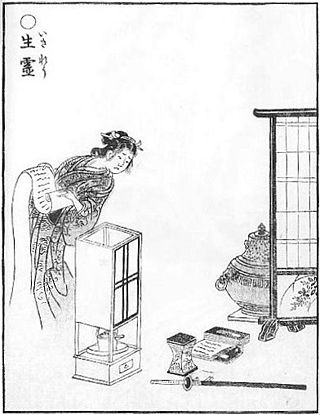
Ikiryō, also known as shōryō (しょうりょう), seirei (せいれい), or ikisudama (いきすだま), is a disembodied spirit or ghost in Japanese popular belief and fiction that leaves the body of a living person and subsequently haunts other people or places, sometimes across great distances. The term(s) are used in contrast to shiryō, which refers to the spirit of those who are already deceased.

Ugetsu is a 1953 Japanese period fantasy film directed by Kenji Mizoguchi starring Masayuki Mori and Machiko Kyō. It is based on the stories "The House in the Thicket" and "The Lust of the White Serpent" from Ueda Akinari's 1776 book Ugetsu Monogatari, combining elements of the jidaigeki genre with a ghost story.

Onmyōji (陰陽師) is a 2001 Japanese film directed by Yōjirō Takita. It tells of the exploits of famed onmyōji Abe no Seimei, who meets and befriends bungling court noble Minamoto no Hiromasa. Together they protect the capital of Heian-kyō against an opposing onmyōji, Dōson, who is secretly plotting the downfall of the emperor.
The term yamabito (山人) or sanjin, as understood in Japanese folklore, has come to be applied to a group, some scholars claim, of ancient, marginalized people, dating back to some unknown date during the Jōmon period of the history of Japan.

Muhyo & Roji's Bureau of Supernatural Investigation also known as simply Muhyo & Roji, is a Japanese manga series written and illustrated by Yoshiyuki Nishi. The series ran in Shueisha's shōnen manga magazine Weekly Shōnen Jump from November 2004 to March 2008, with its chapters collected in 18 tankōbon volumes. The series follows Toru Muhyo and Jiro "Roji" Kusano, a young magical law enforcer and his assistant, as they track down and punish spirits based on the articles written in the book of magical law.

Ugetsu Monogatari is a collection of nine supernatural tales first published in 1776. It is the best known work of Japanese author Ueda Akinari.
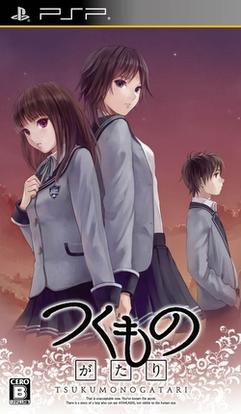
Tsukumonogatari (つくものがたり) is an adventure RPG for the PlayStation Portable developed by Killaware and published by FuRyu. The game was released on January 27, 2011, in Japan.
Billy Richard Parks is an American fantasy, science fiction and horror writer. He writes under the names Richard Parks and W. J. Everett, aside from a few early works written as by B. Richard Parks and Rick Parks.

Worshipping Small Gods is a collection of fantasy short stories by American writer Richard Parks. It was first published in trade paperback by Prime Books in January 2007, with a hardcover edition following from the same publisher in May of the same year.
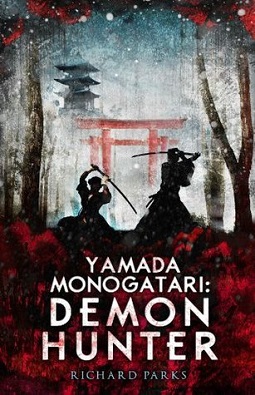
Yamada Monogatari: Demon Hunter is a collection of historical mystery fantasy short stories by Richard Parks, the first volume in a series featuring his sword and sorcery character Yamada no Goji. It was first published in simultaneous trade paperback and ebook form by Prime Books in January 2013.
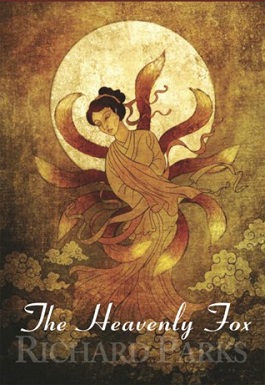
The Heavenly Fox is a fantasy novella by Richard Parks. It was first published in hardcover by PS Publishing in February 2011. A subsequent ebook edition appeared in October 2013. It was nominated for the 2012 Mythopoeic Fantasy Award for Adult Literature.
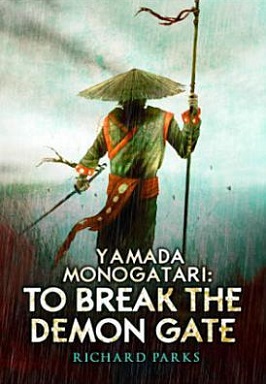
Yamada Monogatari: To Break the Demon Gate is a historical fantasy novel by Richard Parks, the second volume in his Yamada Monogatari series featuring his sword and sorcery character Yamada no Goji. It was first published in simultaneous trade paperback and ebook form by Prime Books in November 2014, with the first hardcover edition, under the alternate title To Break the Demon Gate, published by PS Publishing the same month. A subsequent audiobook edition was issued by Audible in December of the same year.
Bibliography of fantasy writer Richard Parks:

Kongo religion encompasses the traditional beliefs of the Bakongo people. Due to the highly centralized position of the Kingdom of Kongo, its leaders were able to influence much of the traditional religious practices across the Congo Basin. As a result, many other ethnic groups and kingdoms in West-Central Africa, like the Chokwe and Mbundu, adopted elements of Bakongo spirituality.















